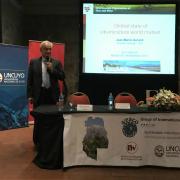
More than 250 experts from around the world (over 20 countries represented) took part in the different sessions of this conference, which was dedicated in particular to the sustainability of viticulture in the different scenarios of climate change.
At the opening of the forum placed under the patronage of the OIV, the Vice-President of the Organisation, Claudia Quini, gave a presentation of Argentine vitiviniculture on behalf of the INV (Argentine National Vitiviniculture Institute).
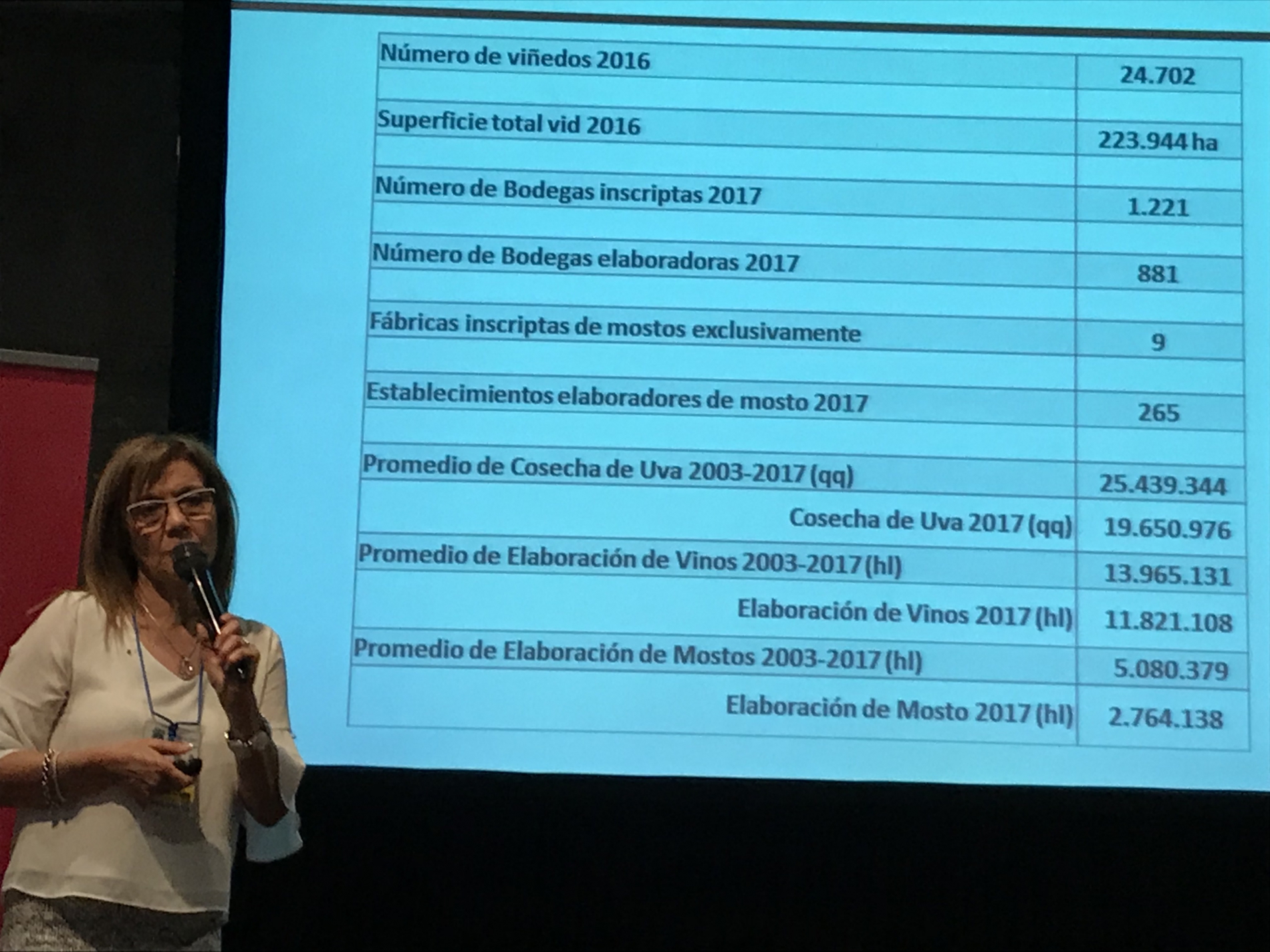
The OIV Director General, Jean-Marie Aurand, gave a panorama of the vitivinicultural sector at the global level, as well as the major trends and main issues, highlighting the role of the OIV in this context.
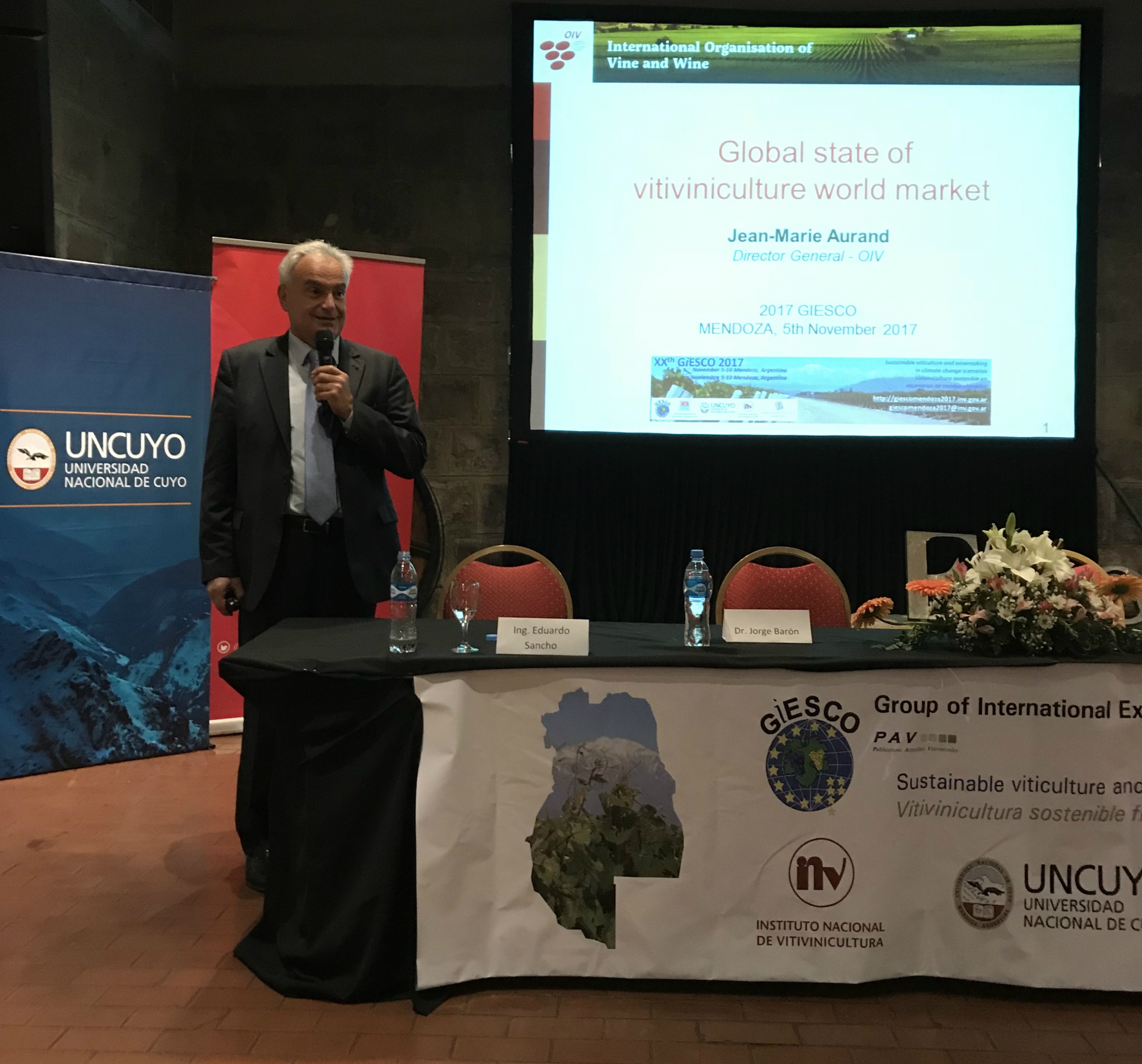
The GiESCO Association brings together experts in vitivinicultural systems. Originally focused on vineyard training systems and ecophysiology, the work of this group of experts has expanded to include the key issues of fundamental and applied viticulture.
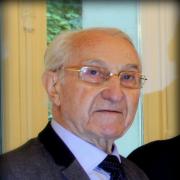
One month ago, at the OIV headquarters, he was celebrating the 30th anniversary of the OIV Master's in Wine Management that he founded, surrounded by two generations of former students.
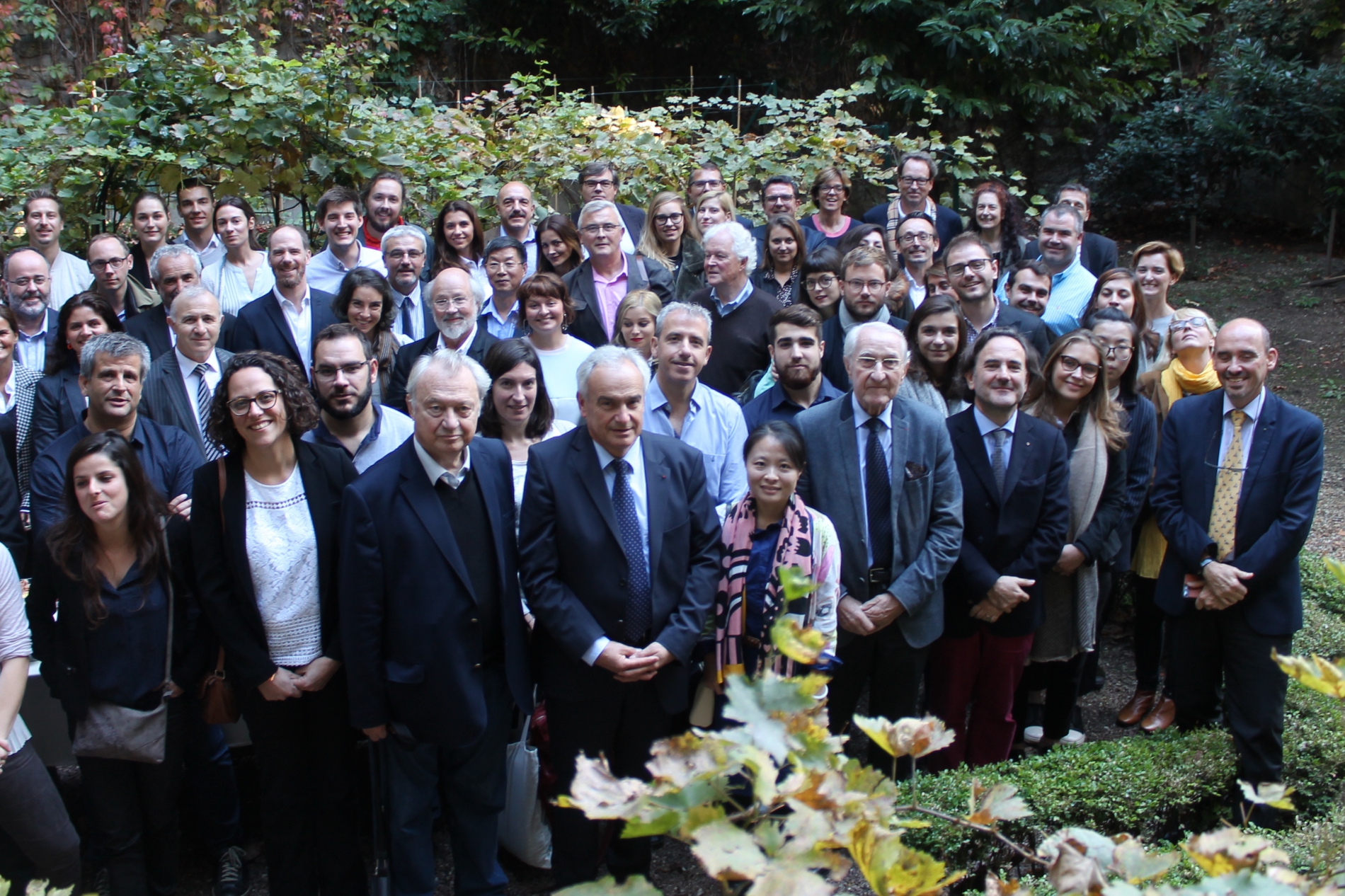
A graduate of the Paris Law Faculty and the research and development centre of the Department of Fraud Control, he began his career as General Counsel for the National Department of Control for Wines and Spirits (1964-1970), then as head of the bureau of wines and beverages at the Ministry of Agriculture (1970-1981).
Inspector General for Fraud Control, he was appointed by France as Commissioner-General to organise the OIV general assemblies in Paris in 1975 and 1982, for which he was the spokesperson for issues relating to designations of origin and wine quality. From 1982 to 1985, he presided the OIV "Regulation and Quality Control" Expert Group.
His legal competencies and knowledge of the vitivinicultural sector paved the way to his presidency of the "Wine" Group (1979) and "Spirituous Beverages" Group (1984) at the Council of Ministers of the European Union, his participation in the revision of the Paris Convention with the WIPO, his vice-presidency of the FAO Wine Group (1983) and his leadership of the French delegation to the Codex Alimentarius Commission.
After becoming Deputy Director of Consumption and Fraud Control, in 1985 he was elected OIV Director General and occupied the post until 1996, developing the activities of the Organisation, which grew from 33 Member States to 46 during this period.
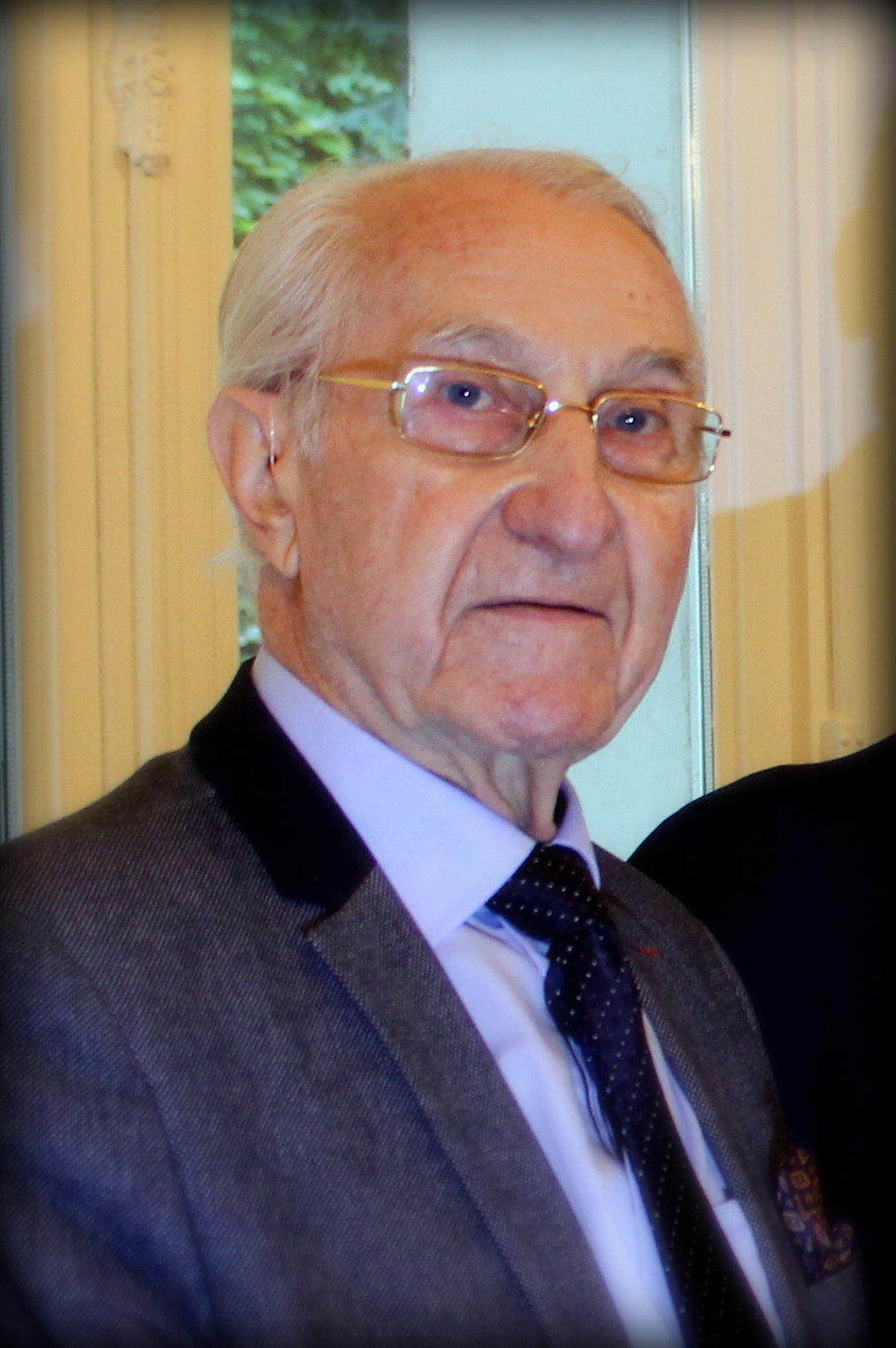
Passionate about history and wine law, and proud of his Burgundy origins, he created the first wine law course in 1971 and loved sharing his passion with students in oenology, economy, agronomy or law at numerous French universities. This is how he came to be at the heart of the initiative to create the International Wine Law Association (IWLA) in 1987 and the International University Association of Wine (AUIV), which took charge of the OIV Master's in Wine Management.
For 20 years, he continued to share his skills as part of the IWLA, as part of the Académie Amorim over which he presided and with the UNESCO Chair "Culture and Traditions of Wine" at the University of Burgundy.
A great diplomat, he leaves us with the memory of a passionate and inventive OIV Director dedicated to the service of the world of vine and wine that he knew so well.
The OIV pays tribute to his memory and would like to extend its deepest sympathies to his family.
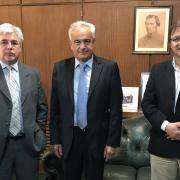
This will take place in Punta del Este on 19-23 November 2018, on the general theme of "Shaping the Future: Production and Market Challenges".
The Uruguayan Minister for Agriculture, Mr Tabaré Aguerre, confirmed his country's full commitment to the success of this event.
Jean-Marie Aurand, after paying a visit to the location where the Congress is set to take place, expressed his great satisfaction with the way in which the various actors involved are mobilising more than a year in advance, and especially with the high level of involvement of the INAVI (National Institute of Vitiviniculture).
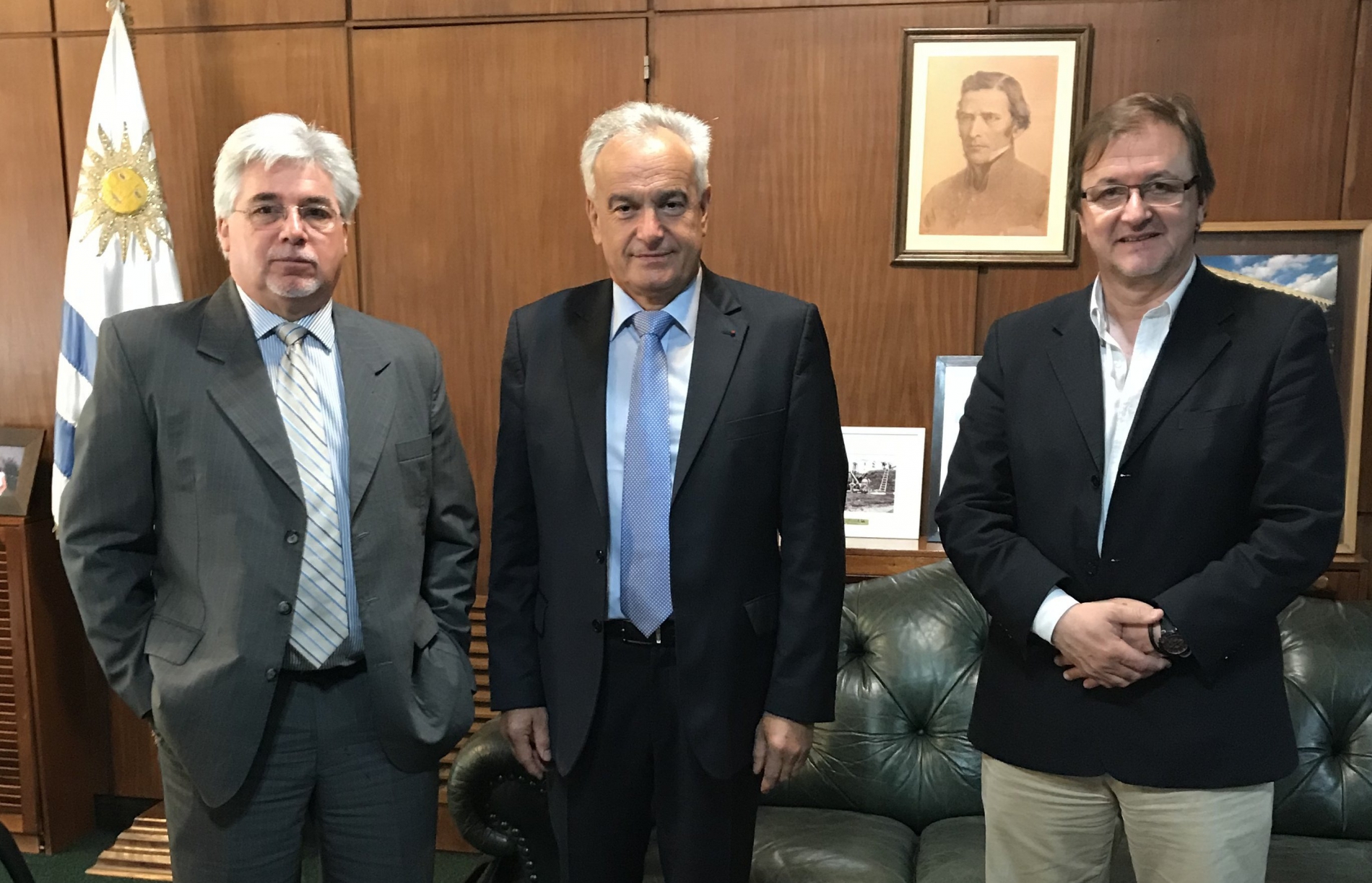
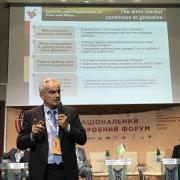
This forum brought together over 250 participants, including the major Ukrainian vitivinicultural companies. Discussions focused on the state of the vitivinicultural sector and its prospects surrounding the key issues: vineyard development, modernisation of companies, standardisation and the evolution of the regulatory framework in accordance with international standards.
The OIV Director General, after having praised the quality of discussions during this forum, gave a presentation on the OIV and its missions, highlighting the main developments of the vitivinicultural sector at the global scale and the major issues for the future. He particularly insisted on the importance of the standardisation of products, according to international standards, to ensure their quality and meet consumer expectations on both the internal and export markets.
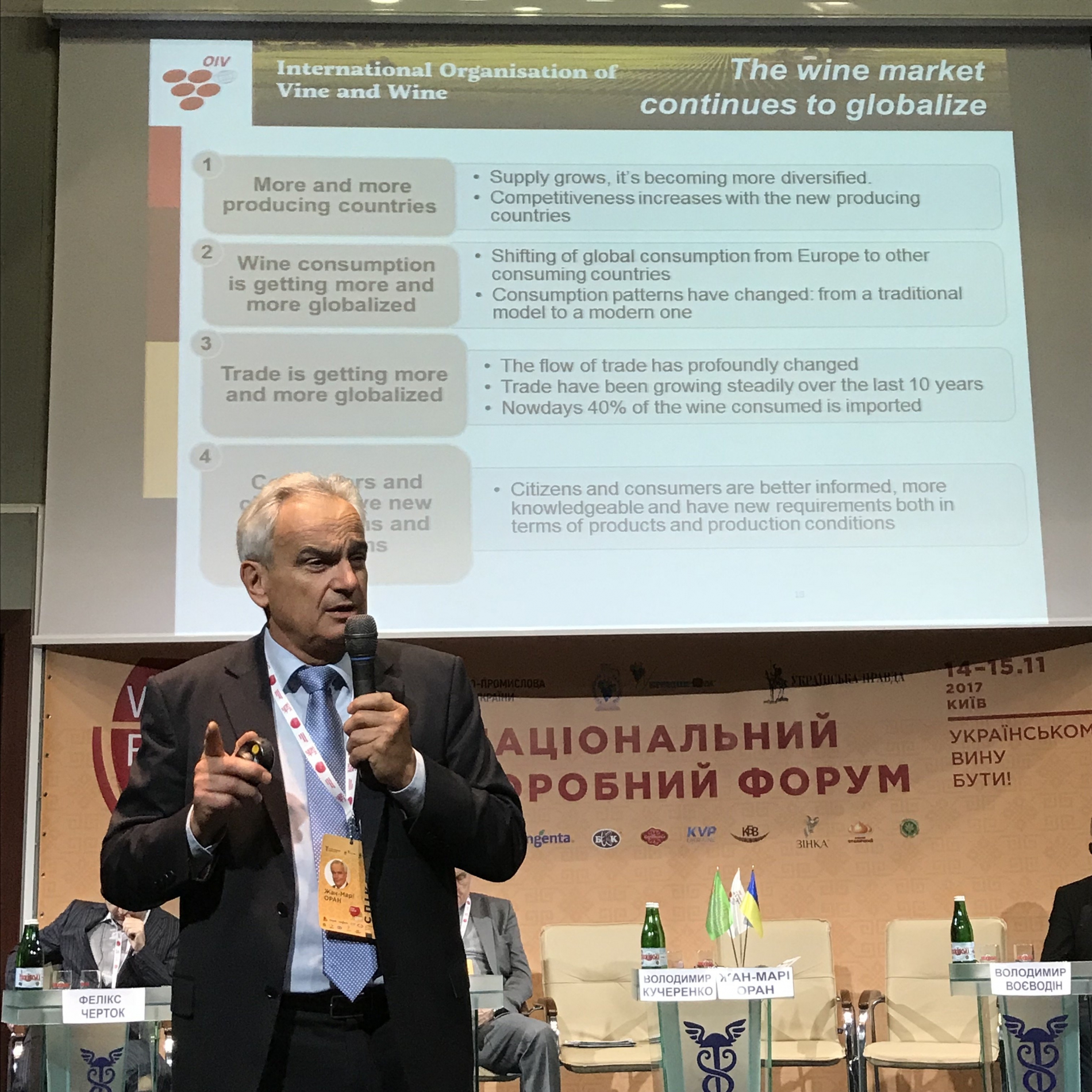
The forum was extended by the Ukrainian Wine Festival, during which the wines and brandies of the major companies in the sector were presented.
With a vineyard surface area of 45 000 hectares, Ukraine produces almost 1 million hectolitres of wines and brandies. The country has almost 150 such companies.
During Jean-Marie Aurand's visit, he also had a meeting with the First Vice Prime Minister of Ukraine, Stepan Kubiv, in order to examine the prospects of the Ukraine returning to the OIV.
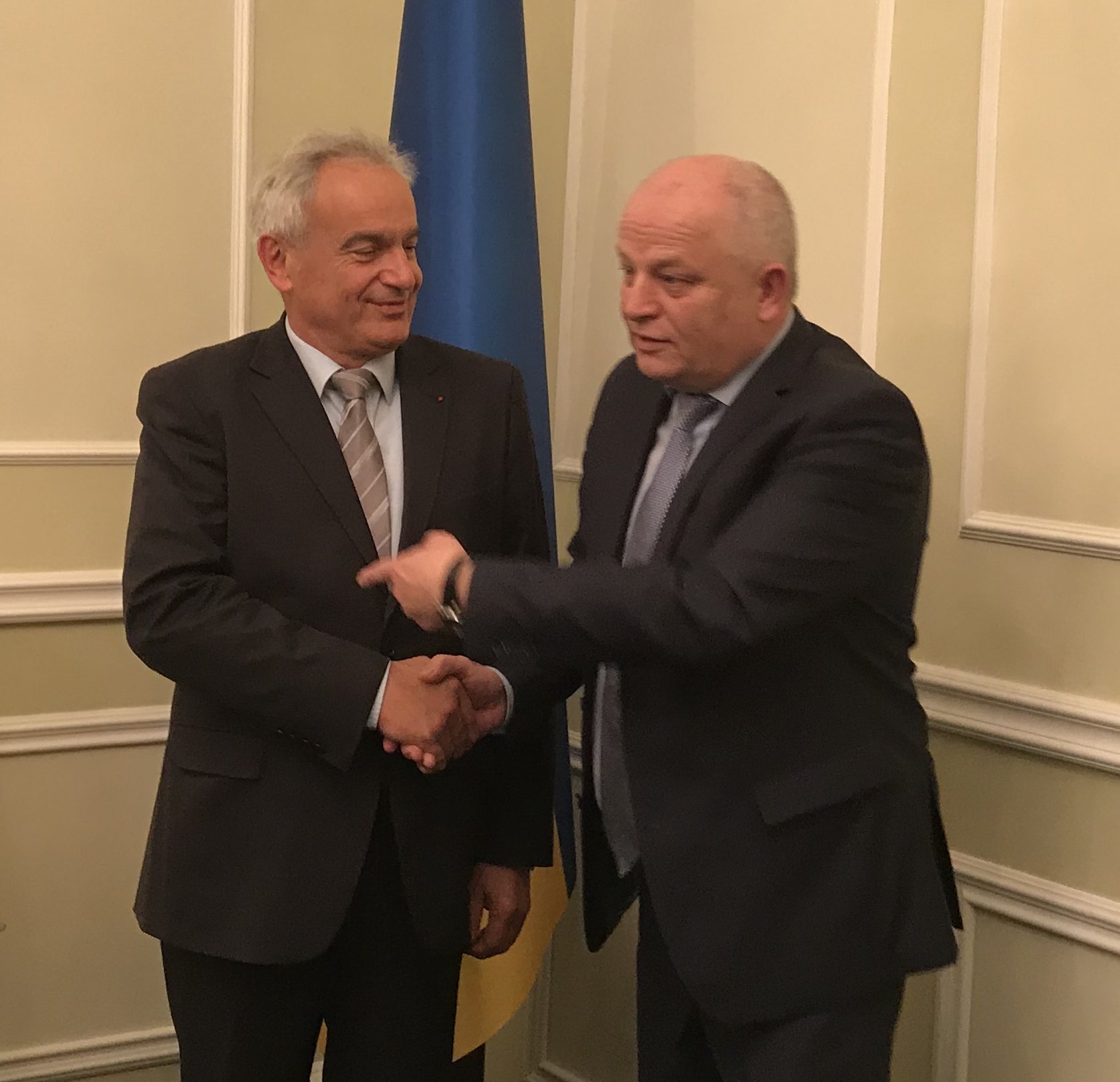
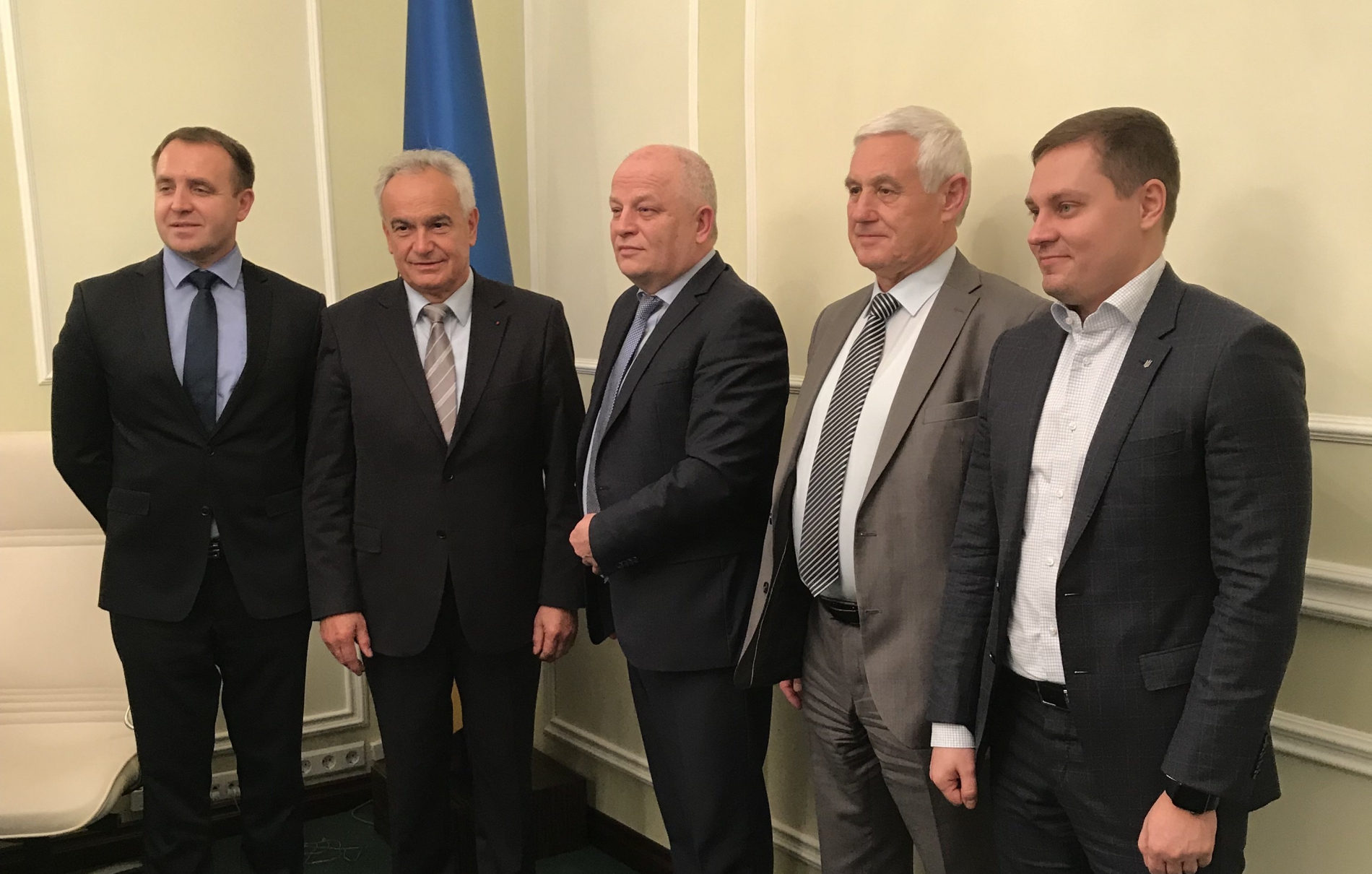
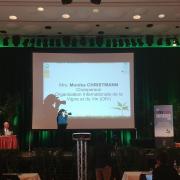
The 4 per 1000 initiative aims to promote sustainable soil management in order to take action for food safety and the climate. The event attracts a large number of personalities from all arenas: government representatives, intergovernmental and non-governmental organisations, and research institutions. During the opening session, Monika Christmann gave a presentation on the OIV, including its involvement in issues related to environmental protection and sustainability.
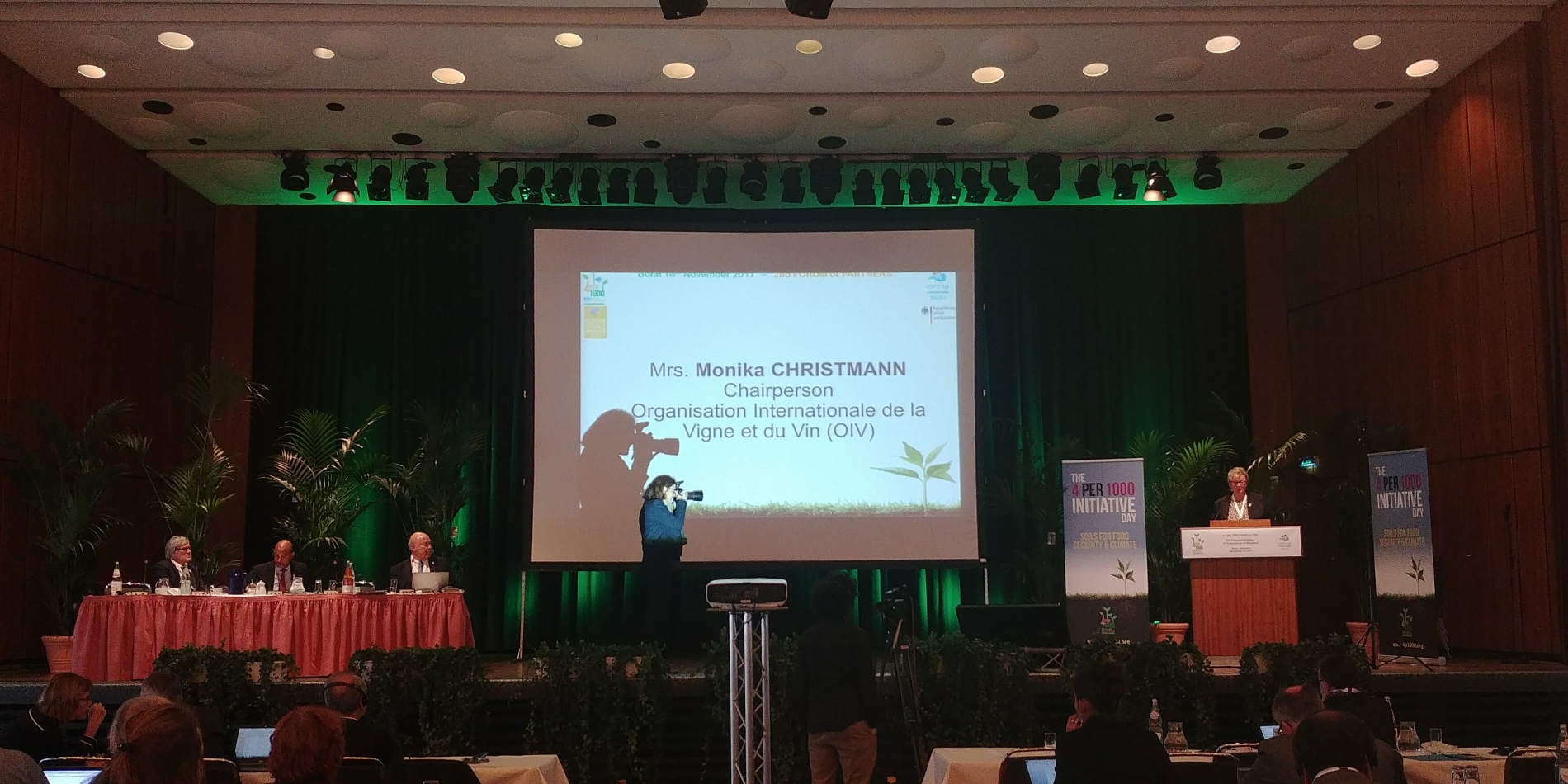
Soils are a place of considerable carbon stocks, yet often overlooked. An increase of 0.4% per year of soil carbon stocks, thanks to adapted cultivation practices, could absorb up to 80% of total greenhouse-gas emissions.
The aim of the 4 per 1000 initiative is to encourage approaches that seek to promote carbon sequestration in soils.
The initiative, launched by the French government during COP21 in 2015, has seen strong expansion since. Today the consortium has 21 countries and 11 intergovernmental organisations as members – including the OIV – while 19 countries and over 100 non-governmental organisations and research institutions take part as forum members.